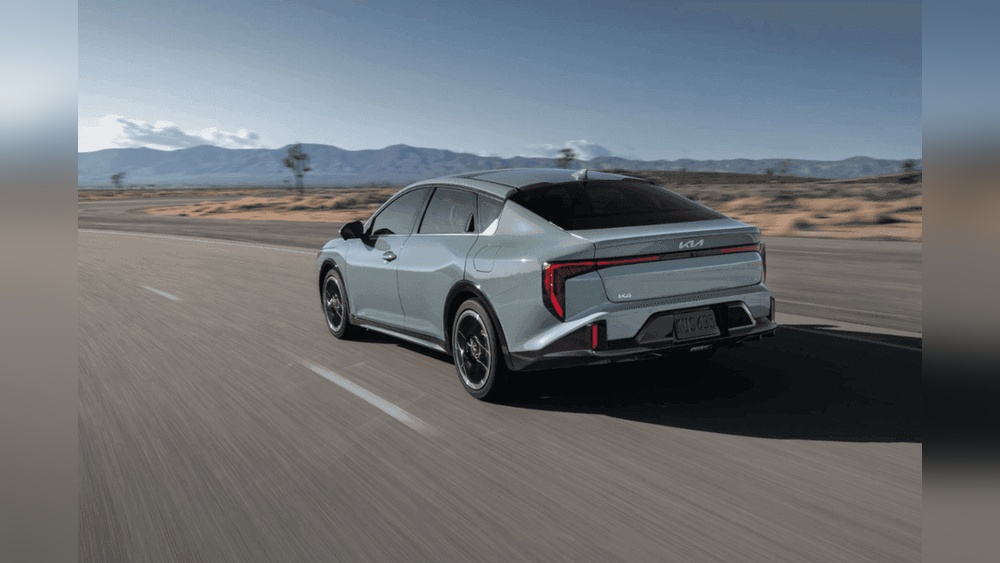If you’re looking to drive green without giving up the power and space of an SUV, a hydrogen SUV might be exactly what you need. These vehicles offer a unique blend of eco-friendly technology and practical performance, producing only water vapor as emissions.
But with limited options and concerns about fuel availability, choosing the best hydrogen SUV for your eco-driving lifestyle can be tricky. You’ll discover the top hydrogen SUVs that deliver clean driving while meeting your everyday needs—helping you make a smart choice for both the planet and your daily commute.
Keep reading to find the perfect hydrogen SUV that fits your eco-conscious goals.

Credit: www.vecteezy.com
Top Hydrogen Suvs
Hydrogen SUVs offer a clean alternative to traditional gas vehicles. They run on hydrogen fuel cells that emit only water vapor. This makes them great for eco-driving and reducing pollution.
Several top models stand out for their performance and green technology. They combine modern design with efficient hydrogen power. Here are the best hydrogen SUVs available today.
Toyota Mirai
The Toyota Mirai is a well-known hydrogen SUV. It features a fuel cell system that produces zero emissions. The Mirai offers a smooth ride and good range on a full tank. It refuels quickly, similar to gasoline cars. Toyota focuses on safety and comfort in this model. The Mirai is available in several regions, making it easy to find.
Hyundai Nexo
Hyundai Nexo is a popular hydrogen SUV with advanced technology. It provides a spacious interior and modern safety features. The Nexo has a long driving range and fast refueling time. Its fuel cell system delivers clean energy with no tailpipe pollution. Hyundai designed the Nexo for efficiency and reliability. This SUV is a strong choice for eco-friendly drivers.
Honda Clarity Fuel Cell
Honda Clarity Fuel Cell is another important hydrogen SUV. It combines comfort with zero-emission driving. The Clarity offers a quiet cabin and smooth handling. It uses hydrogen fuel cells for clean power and water vapor emissions. Though production has stopped, it remains a notable model. The Clarity helped pave the way for hydrogen vehicle technology.
Environmental Impact
Hydrogen SUVs offer a cleaner alternative to traditional gasoline vehicles. Their environmental impact depends on how hydrogen is produced and used. These vehicles help reduce air pollution and greenhouse gas emissions in cities. Understanding their benefits can help drivers make eco-friendly choices.
Hydrogen fuel cell technology powers these SUVs with water vapor as the only exhaust. This makes them a strong option for eco-driving. The source of hydrogen is important to ensure the full environmental advantage.
Zero Tailpipe Emissions
Hydrogen SUVs produce no harmful gases from the tailpipe. They do not emit nitrogen oxides, carbon monoxide, or particulates. This improves air quality and reduces smog, especially in urban areas. Cleaner air means better health for all city residents.
Water Vapor Byproduct
The only emission from hydrogen SUVs is water vapor. This vapor is harmless and quickly disperses into the air. Unlike traditional exhaust, it does not contribute to climate change or air pollution. This feature makes these vehicles very eco-friendly.
Clean Hydrogen Production
The environmental benefits depend on how hydrogen is made. Hydrogen created using solar or wind energy has a low carbon footprint. This process, called electrolysis, splits water into hydrogen and oxygen without pollution. Clean hydrogen production is key to truly green driving.
Challenges Of Hydrogen Suvs
Hydrogen SUVs offer a promising path for eco-driving with zero emissions. Yet, several challenges limit their widespread adoption. These obstacles affect both users and manufacturers. Understanding these issues is key to appreciating the current state of hydrogen vehicles.
Limited Refueling Infrastructure
Hydrogen refueling stations are scarce worldwide. This scarcity creates range anxiety for drivers. Few cities have enough stations to support regular use. Building new stations requires high investment and complex safety rules. Limited infrastructure slows the growth of hydrogen SUV popularity.
High Production Costs
Hydrogen SUVs cost more than traditional vehicles. Their fuel cells and specialized parts increase manufacturing expenses. Producing hydrogen fuel adds another layer of cost. These factors make hydrogen SUVs less affordable for many buyers. Lower production costs are needed for mass adoption.
Fuel System Issues
Hydrogen fuel systems can face reliability problems. Some users report leaks or fuel cell malfunctions. These issues reduce vehicle performance and driving range. Maintaining fuel cell technology requires skilled technicians. Improving fuel system durability is essential for user trust.

Credit: www.vecteezy.com
Hydrogen Fuel Sources
Understanding hydrogen fuel sources is key to choosing the best hydrogen SUV for eco-driving. The way hydrogen is produced affects its environmental impact. Some methods are cleaner and more sustainable than others. This section explains the main hydrogen fuel sources and their effects on eco-driving.
Renewable Energy Electrolysis
Renewable energy electrolysis uses electricity from solar, wind, or hydro power. This electricity splits water into hydrogen and oxygen. The process produces green hydrogen without carbon emissions. It is the cleanest way to make hydrogen fuel. Vehicles fueled this way have a very low environmental impact. Renewable electrolysis supports a sustainable and eco-friendly hydrogen supply.
Fossil Fuel-based Hydrogen
Fossil fuel-based hydrogen comes from natural gas or coal. This method releases carbon dioxide and other pollutants. It is cheaper but less eco-friendly than renewable electrolysis. Hydrogen made from fossil fuels can still reduce tailpipe emissions. However, the overall carbon footprint is higher. Choosing SUVs powered by green hydrogen offers better environmental benefits.
Hydrogen Leakage Concerns
Hydrogen leakage is a concern during production, transport, and use. Hydrogen is a small molecule and can escape easily. Leakage reduces fuel efficiency and increases emissions indirectly. It can also pose safety risks if not managed well. Advances in technology aim to reduce leakage in hydrogen systems. Proper handling ensures hydrogen SUVs remain a clean and safe choice for eco-driving.
Comparing Hydrogen And Electric Suvs
Hydrogen and electric SUVs both offer eco-friendly alternatives to traditional gas vehicles. Each type uses different technology to reduce pollution and dependence on fossil fuels. Understanding their differences helps drivers make informed choices about eco-driving.
Energy Efficiency
Electric SUVs convert about 85-90% of electrical energy into motion. Hydrogen SUVs use fuel cells to convert hydrogen into electricity but lose energy during production and conversion. This makes hydrogen SUVs less efficient overall compared to electric ones. Electric SUVs often have longer driving ranges per unit of energy used.
Environmental Benefits
Both types produce zero tailpipe emissions. Electric SUVs run on batteries charged by electricity, which can come from renewable sources. Hydrogen SUVs emit only water vapor when driving. Their overall cleanliness depends on how hydrogen or electricity is produced. Hydrogen made from renewable energy has a very low carbon footprint. Fossil fuel-based hydrogen reduces environmental benefits.
Market Availability
Electric SUVs are widely available with many models on the market. Charging stations are growing fast in cities and highways. Hydrogen SUVs remain limited due to fewer models and scarce refueling stations. Toyota Mirai and Hyundai Nexo lead the hydrogen SUV market. Hydrogen fueling infrastructure is still developing, mostly in select regions.
Future Of Hydrogen Suvs
Hydrogen SUVs promise a cleaner way to drive. They use fuel cells that emit only water vapor. This makes them great for the environment.
Many experts believe hydrogen SUVs will grow in popularity. This growth depends on several key factors. These include better infrastructure, new technology, and supportive policies.
Infrastructure Expansion
Hydrogen fueling stations are still rare today. More stations will make owning a hydrogen SUV easier. Cities and highways need more refueling points. This helps drivers travel long distances without worry. Companies and governments plan to build many new stations soon.
Technological Advances
Fuel cell technology is improving fast. New designs make hydrogen tanks safer and lighter. Cars will have longer ranges and faster refueling times. Battery and fuel cell hybrids may appear too. These changes will boost SUV performance and comfort.
Policy And Incentives
Governments offer incentives to encourage hydrogen vehicles. These include tax breaks and rebates for buyers. Rules may require low emissions from new cars. Supportive policies lower costs and increase demand. This helps hydrogen SUVs compete with electric and gas models.

Credit: www.freepik.com
Frequently Asked Questions
What Is A Downside Of Using Hydrogen Fuel For Driving?
A major downside of hydrogen fuel is the limited refueling infrastructure, making it hard to find stations. Hydrogen production costs remain high, increasing overall vehicle expenses. Energy efficiency is lower compared to battery electric cars, and the market offers fewer affordable hydrogen models.
What Is The Best Hydrogen Car To Buy?
The Toyota Mirai and Hyundai Nexo are top hydrogen cars available today. Mirai is widely recognized and accessible. Hyundai Nexo offers advanced features and solid range. Both provide eco-friendly driving with zero tailpipe emissions when fueled by green hydrogen. Choose based on availability and personal preference.
What Are The Common Problems With Mirai?
Common problems with Mirai include hydrogen fuel system leaks, poor fuel efficiency, fuel cell performance issues, and reduced driving range.
Are Hydrogen-powered Cars Eco-friendly?
Hydrogen-powered cars emit only water vapor, making them eco-friendly if fueled by green hydrogen. Fossil fuel-based hydrogen reduces their environmental benefits.
Conclusion
Choosing the best hydrogen SUV supports cleaner driving and reduces pollution. These vehicles emit only water vapor, helping protect the environment. Hydrogen fuel’s impact depends on how it is made, with renewable sources being the best. While challenges like refueling stations exist, technology is improving steadily.
Driving a hydrogen SUV can be a smart step toward eco-friendly travel. Keep an eye on new models and infrastructure growth for better options soon. Eco-driving with hydrogen vehicles offers hope for a greener future on the road.
